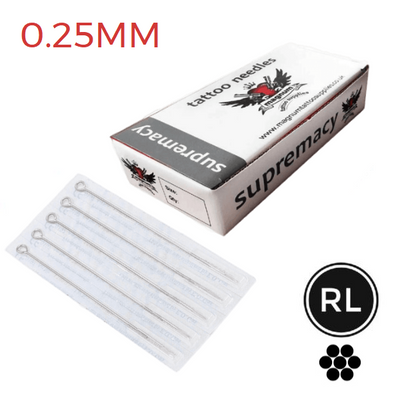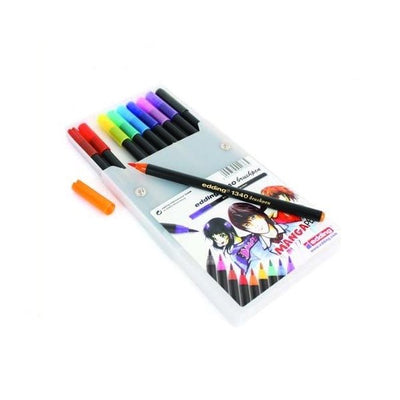Are you someone who has always had a deep passion for art, and you've often found yourself sketching, drawing, or painting in your free time? If the world of tattoos has piqued your interest, you may be wondering how to turn your artistic passion into a rewarding tattoo career.
Well, you're in the right place! In this guide, we'll walk you through the steps to transform your love for art into a fulfilling journey as a tattoo artist.
What is tattoo artistry?
Tattoo artistry is a form of body modification where a design is made by inserting ink, dyes, and pigments, either indelible or temporary, into the dermis layer of the skin to change the pigment. This ancient practice has evolved over millennia, serving various purposes in different cultures, from symbols of status, religious beliefs, and decorations for bravery, to forms of punishment, and as marks of outcasts, slaves, and convicts.
Today, tattoo artistry is widely recognised as a legitimate art form and a way for individuals to express themselves, with tattoo artists often being highly skilled professionals. These artists use specialised tools and techniques to create detailed and intricate designs that can range from simple and symbolic to complex and photorealistic. Tattoo studios have become spaces where art meets personal expression, making tattoo artistry an integral part of contemporary culture and fashion.

Is tattoo artistry considered a legitimate profession?
Tattoo artistry is widely recognised as a legitimate profession. Tattoo artists are skilled professionals who specialise in designing and applying tattoos to the body using various techniques and tools. This field requires a combination of artistic talent, technical skill, knowledge of hygiene and safety protocols, and often an understanding of customer service. Many tattoo artists undergo formal training or apprenticeships to refine their skills and learn the intricacies of the craft.
What art-related degree is most suitable for aspiring tattoo artists?
For aspiring tattoo artists, majoring in Graphic Design can be highly beneficial, as it provides a strong foundation in design principles, digital and traditional illustration techniques, and visual communication—all of which are valuable skills in tattoo artistry. Graphic design courses typically cover a wide range of topics, including typography, branding, digital imaging, and layout, which can enhance an artist's versatility and ability to create custom tattoo designs according to client specifications.
However, a degree in Fine Arts is also a popular and suitable choice for those looking to enter the tattoo industry. A Fine Arts degree focuses more on traditional art techniques, history, theory, and various mediums (such as painting, drawing, sculpture, etc.), offering a broader exploration of artistic styles and methods. This can be particularly useful for tattoo artists who wish to specialise in styles that require strong artistic skill, such as realism, portraiture, or classical art-inspired tattoos.
How to turn your passion for art into a tattoo career
1. Develop your artistic skills
First and foremost, hone your artistic skills. Dedicate time to perfecting your drawing and painting techniques. Experiment with different styles and mediums to broaden your artistic horizons. Tattooing is a form of art, so a strong foundation in traditional art forms is essential.
2. Study tattooing
Before jumping into the tattoo industry, it's crucial to gain a solid understanding of the craft. Look for reputable resources such as books, online courses, and tutorials on tattooing techniques, equipment, and hygiene practices. Understanding the basics is crucial for success.
3. Apprenticeship
One of the most traditional paths to becoming a tattoo artist is through apprenticeship. Seek out experienced tattoo artists who are willing to take you under their wing. This hands-on learning experience will provide you with invaluable knowledge and guidance.
4. Create a portfolio
Start building a portfolio of your artwork, specifically designs that showcase your potential as a tattoo artist. Include a variety of styles and themes to demonstrate your versatility. A strong portfolio is essential when seeking job opportunities or building your own clientele.

5. Gain certification
Depending on your location, you may need to acquire certifications or licenses to legally practice tattooing. Check the requirements in your area and fulfil them to ensure you're operating within the law.
6. Invest in quality equipment
Invest in high-quality tattoo equipment, including tattoo machines, tattoo needles, ink, and hygiene supplies. Never compromise on the safety and well-being of your clients. Maintaining clean and sterile workspaces is non-negotiable in the tattoo industry.
7. Network and build your reputation
Attend tattoo conventions, art exhibitions, and events to network with fellow artists and potential clients. Social media platforms like Instagram can also be a powerful tool to showcase your work and connect with a broader audience.
8. Start small
When you're starting, it's a good idea to take on smaller tattoo projects to build your confidence and skills. Over time, you can gradually take on more complex designs as you gain experience.
9. Keep learning
The world of tattooing is constantly evolving. Stay updated on the latest techniques, trends, and technology in the industry. Continuing education will keep your skills sharp and your designs fresh.
10. Patience and persistence
Becoming a successful tattoo artist takes dedication and time. Don't be discouraged by initial setbacks or challenges. Keep pushing forward, learning from your experiences, and refining your craft.

Can anyone become a tattoo artist?
Yes, theoretically, anyone can become a tattoo artist, but it requires a combination of artistic skill, dedication, proper training, and adherence to health and safety regulations.
Becoming a tattoo artist is not an overnight process; it requires years of practice, learning, and professional development. It's also a career path that demands a high level of responsibility due to the permanent nature of tattoos and the importance of maintaining strict hygiene standards to prevent infections and ensure client safety.



























































 Studio supplies
Studio supplies












 Power & batteries
Power & batteries








 Aftercare
Aftercare





















 Apprentice
Apprentice


 Piercing & jewellery
Piercing & jewellery







 PMU supplies
PMU supplies




 New arrivals
New arrivals
 Gift vouchers
Gift vouchers
 Shop all
Shop all
















































